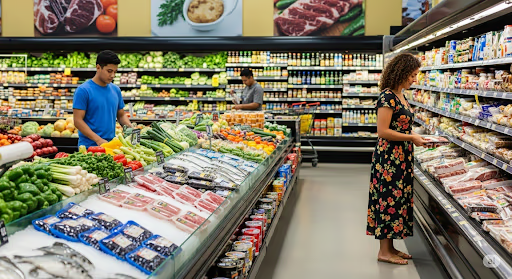Oman’s Inflation Steady at 0.81% in 2025 Amid Subsidies and Food Price Controls
- July 27, 2025
- 0

Oman reported a modest inflation rate of 0.81% from January to May 2025, as revealed by the Ministry of Economy. This stability in inflation is attributed to strategic government measures that have effectively managed economic pressures. Despite rising import and producer costs, the government’s proactive approach has played a crucial role in maintaining economic stability.
The Omani government has implemented several initiatives to curb inflationary pressures. Key among these are subsidies that have helped control the cost of essential goods and services. By subsidizing critical sectors, the government has managed to keep household expenses in check, providing relief to consumers amid global economic challenges.
Another significant factor contributing to the low inflation rate is the government’s control over imports. By regulating import activities, Oman has been able to mitigate the impact of global price fluctuations on its domestic market. Additionally, a stable food supply has been maintained through effective food price controls, which have resulted in a slight decrease in food prices. This decrease has helped offset price increases in other sectors such as miscellaneous goods and transport.
While food prices have seen a decline, other sectors have experienced varying inflationary trends. The transport sector and miscellaneous goods have witnessed price increases, but these have been balanced by the overall decrease in food prices. This sector-specific approach has ensured that inflation remains manageable across different areas of the economy.
Oman’s ability to maintain a low inflation rate through strategic subsidies, controlled imports, and stable food supplies serves as a model for economic stability. These measures highlight the importance of government intervention in managing economic challenges and ensuring consumer protection.